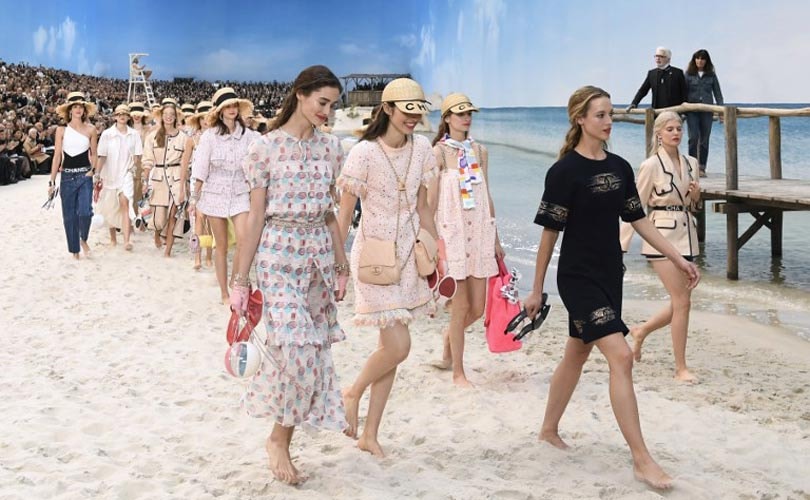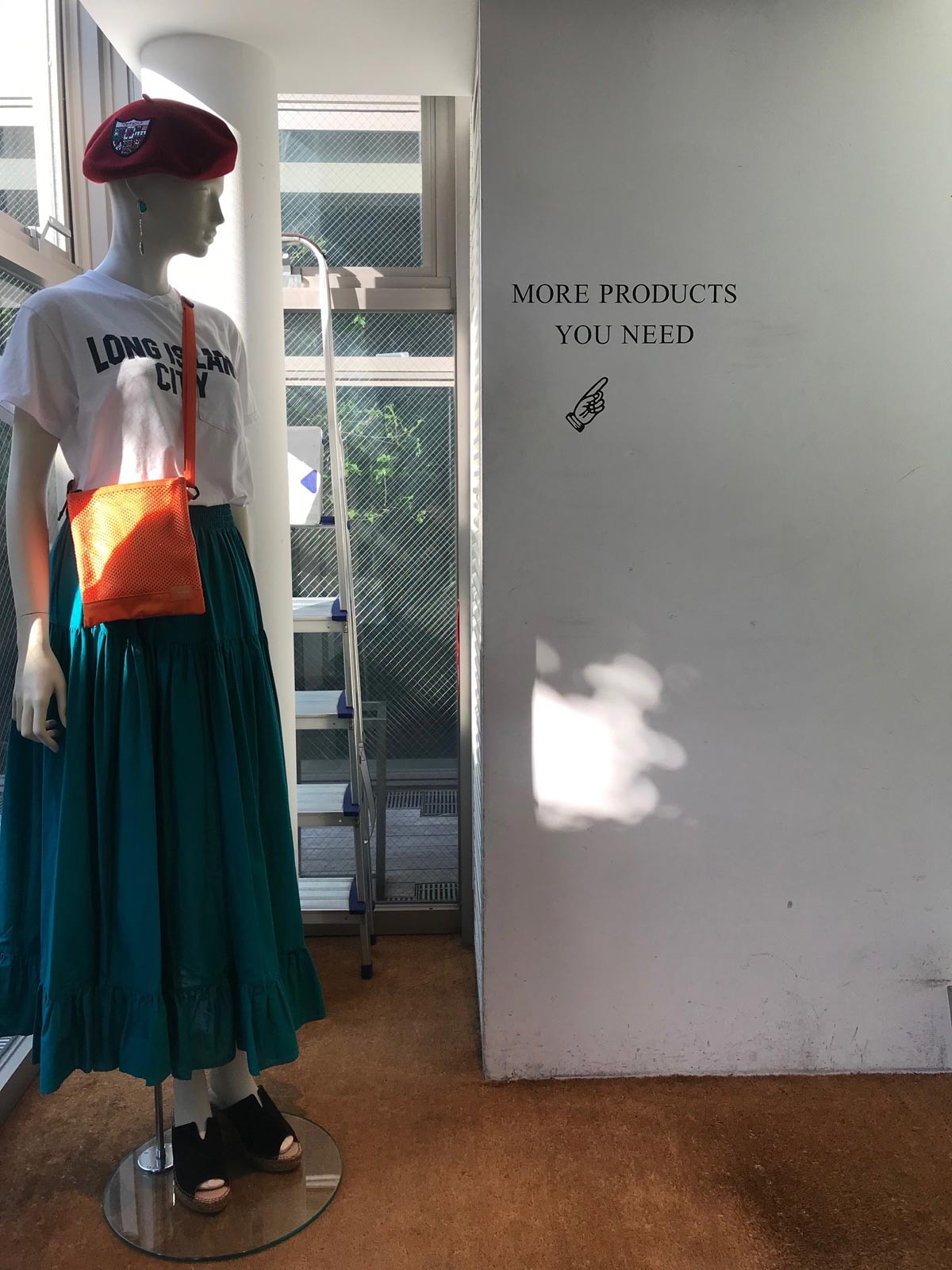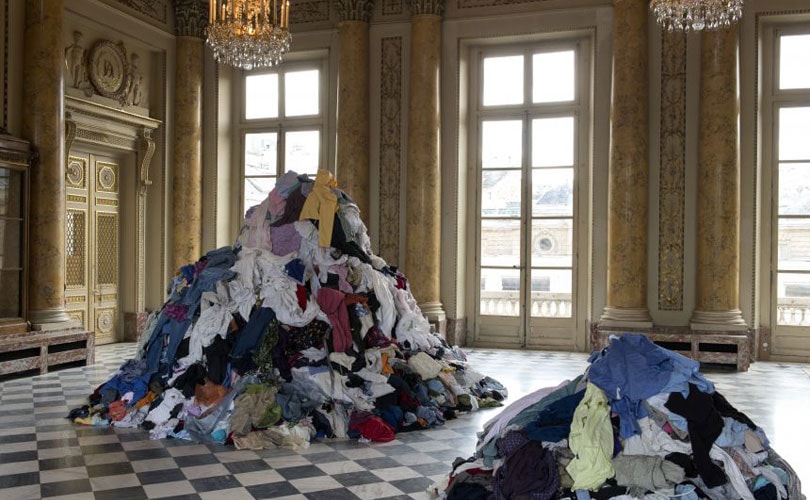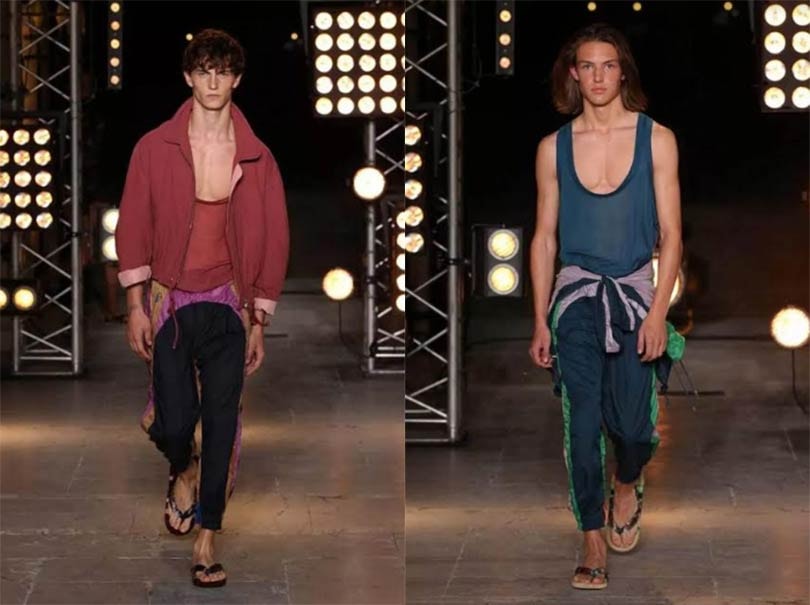 LOOKING BACK
LOOKING BACK The year is coming to an end again, which means that FashionUnited traditionally looks back at the stories from the past year. A selection of opinion pieces worth reading published in 2019.
From oldest to newest, from the archive:
Is fashion week no longer in fashion?
February 2019 - The format of the shows, whether they are co-ed, held be in host cities or take place in accordance with the retail calendar, is not, however, the main issue in 2019. While the Instagram generation expects to be able to scroll through endless images of catwalk shows or haute couture photos, it's the abundant fashion weeks that get lukewarm reviews. Like a fashion connoisseur jokes, there's always have a fashion week somewhere, and it has little to do with a structured fashion calendar. However, it is not only the journalists alluding to problems for fashion week. From new surveys have shown that consumer interest in the global fashion weeks have declined significantly in the last five years.

Is threat of a recession driving designers to go more
minimalist?
April 2019 - Maximism has been admired for almost a decade now. In 2010, when the world began to recover from the fiercest economic downturn. crisis since the great recession, fashion designers returned to a maximalist aesthetics. Embellishments, bright colours, prints and the idea of wealth were celebrated again. And then Alessandro Michele came to Gucci, and voilá, maximalism was once again extremely popular. All Trends come and go, and also to the development of maximalist fashion must eventually come to an end. However, it's not just a question of coincidence that designers, particularly in New York and Great Britain, just now opt for a minimalist approach. Trump's policy and the Prime Minister Theresa May's continued failure with regard to the Brexit may hit both locations in a downward spiral.

How Japan mastered the art of experiential retailing
July 2019 - The future of shopping is at stake for retailers in embracing meaningful experience concepts, retail managers say. On a recent trip to Tokyo, Japan, I witnessed for the first time of retail with a soul. Inspiration and innovation were visible everywhere, or it was now in small boutiques in remote locations or at large boutiques. chain stores with huge budgets to innovate and surprise. In unlike other great fashion meccas, the Japanese breathe experiential retail. At department stores, fashion becomes fashion in a different way than the Western standard of shop-in-shops. At Beams it's offer professionally presented on the basis of colour and appearance, not on basis of brand. That's more in line with how consumers prefer shopping. And while you still have the same brands at different stores shops near the Prada monobrandstore will be located in the area. articles of the luxury brand not in one room, as a brand story, present.

Why Haute Couture is more relevant than ever
July 2019 - The breeze from the couture week determines the wind direction of the fashion. That makes haute couture the ultimate creative ground for designers to show their craftsmanship and expertise without restrictions in terms of budget, time and commerce. Couture is at the heart of the ecosystem of the The Fédération de la Haute Couture et de la Mode states that the fashion industry (FHCM). Craftsmanship is a permanent access route between excellence in expertise and modern creativity - that innovation of production techniques embodies.

France to prohibit the destruction of unsold stock: who is going to pay for that?
August 2019 - The French government wants the destruction of unsold ban non-food products in the next two to four years. Premier Edouard Philippe announced the news in June and proclaimed it "an uniquely". The measure is a logical continuation of a roadmap that came about last year; a roadmap for a sustainable economy aimed at reducing waste and converting waste into new products. raw materials. The fashion industry is particularly affected by these measure. The destruction of unsold items is a common approach within the sector. An approach where luxury brands and large fashion conglomerates have always been very discreet about, and now always is being condemned more often after several scandals in recent years. light came.

Womenswear designers are launching men's collections: Will it work?
August 2019 - Women wearing men's garments has been longer just time. What hasn't been done that long is designers who make women's collections and now launch a line for men. Earlier had fashion labels that 'sounded' feminine or were named after their female founder no chance of (commercial) success on the men's modem market. But that time seems to be over. Designers like Stella McCartney, Isabel Marant, Nanushka, Lululemon and even Celine, The Row and Chanel have launched (or are going to launch) a men's line for the season autumn/winter 2019. And there's no question that they never would do if it didn't bring any financial benefit.

Forget G7, slow fashion is the fast track to a bright future
August 2019 - François-Henri Pinault, CEO of luxury conglomerate Kering, this week unveiled the G7 Fashion Pact, an alliance of 32 fashion houses like Prada, Tapestry, Nike, Adidas and Burberry. The pact is committed to protecting the climate, biodiversity and the oceans. However, it remains to be seen what will become of the spectacular announcement. However, the truth is that we, as consumers, do not need committees, foundations or coalitions to take action. undertake. We can make a personal fashion pact, while those in the covenant is concerned with a blueprint for the future: we can embrace slow fashion. The term 'slow fashion' came up at the beginning of this century. the time the slow food movement broke through. Smaller collections, less seasons, less consumption: the answer to problems in the fashion industry seems to be in downsizes.
Read more from the author: How to convince your friends to stop fast fashion Buy

Epstein affair: Unanswered questions left in the fashion industry
August 2019 - The Harvey Weinstein case has triggered the social “Me Too” movement that has barely faltered during its two year run since the scandal broke. However, this year the allegations against and untimely death of Jeffrey Epstein breathes new life into it, as well as leaves a lot of questions unanswered and justice not served. In this opinion piece, FashionUnited looks into some of these questions that the fashion industry need answers to.
This article was originally published on FashionUnited.NL, translated and edited by Kelly Press
Main image: Chanel picture: Bertrand GUAY / AFP
* This article was originally published here
No comments:
Post a Comment